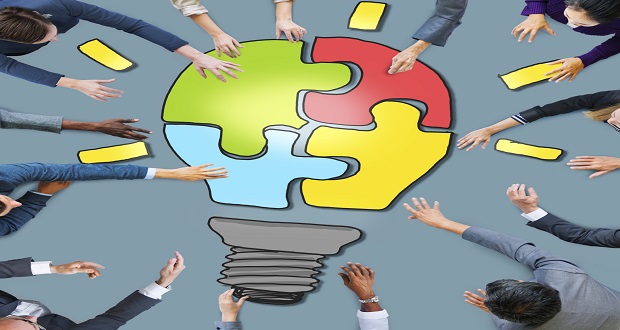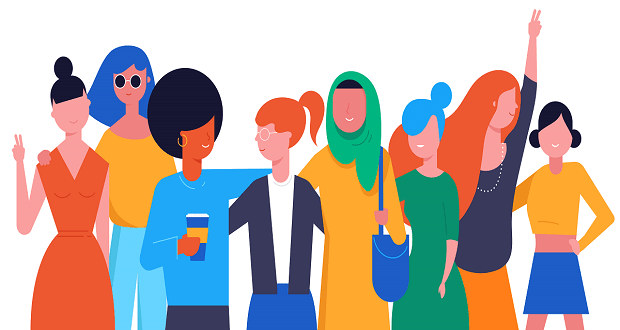
Among the many dynamics to be examined by an organization that is beginning the work of promoting a more inclusive workplace environment, is how much otherness exists inside their organization. Otherness is about being different than the dominant group that is represented in the workplace. “Others” in this context face unique challenges to their career advancement–chief among them is usually a lack of feeling that they belong. A true sense of belonging for all employees is not simply a “nice to have”; it’s a necessity if you want to promote a culture of authenticity and inclusion in your workplace and maximize contributions and productivity from your staff.
A true sense of belonging for all employees is not simply a “nice to have”; it’s a necessity if you want to promote a culture of authenticity and inclusion in your workplace and maximize contributions and productivity Share on XSeveral years ago, I heard Wade Davis speak about his career as an NFL player before he had come out as a gay man. During his playing days, he felt pressure to conceal the fact that he was gay and went to great lengths to make sure nobody would discover his true identity. He described watching practice film with his teammate Champ Bailey – one of the greatest corner backs to ever play the game – and Bailey was trying to help Davis improve on his footwork. He would point things out to Davis about his form, and, rather than absorb the wisdom this Hall of Fame player was offering, Davis’ mind raced with paranoia that the way he moved his body on the football field was going to expose him. He spent so much energy on hiding who he was that he missed out on opportunities to learn and improve himself as a player.
For that person who is the different one in the room, the reminders of one’s “other” status can be constant. For Davis, those reminders showed up for him as he watched practice tapes, and when he was careful to try to fit in with the straight men who dominated his locker room in terms of mannerisms, speech and dress. As a working mother in a culture that is heavily male-dominated across the entire NFL, my reminders have come in the form of men inquiring about my job when I announced my first pregnancy, agents thinking I’m a secretary, and the inner monologue I have in later afternoon meetings when I’m hoping they will wrap up soon so that I won’t be late to pick up my kids.
The work of trying to fit in should not be ignored. Trying to fit in takes energy.
Faced with the knowledge of the challenging experiences of those who are different, what can we do to try to support them?
Let’s begin with what not to do; it’s important to start with a reminder of the distinct difference between the concepts of empathy and sympathy. Empathy is the ability to experience the feelings of another person. It goes beyond sympathy, which is caring and understanding for the suffering of others. A well-intentioned but misguided expression of empathy may (rightfully) be met with more skepticism than would a statement of sympathy.
As a woman working in a male-dominated culture, I find the least helpful thing for me to hear from my male peers is, “I know what you mean – it’s been difficult for me too.” Hearing about someone else’s obstacles to success does not consequently devalue the ones you may have faced. Very few of us have had an easy path, but attempting to equate your journey, as someone who has benefited from the privilege of existing as part of the dominant group, with that of someone who has not had those advantages is simply not helpful and can in fact be destructive.
As a woman working in a male-dominated culture, I find the least helpful thing for me to hear from my male peers is, “I know what you mean – it’s been difficult for me too.” Share on XBy contrast, showing sympathy by simply listening to and believing the experiences of those who are different from us is at the core of what needs to be done here to make progress. Listening and seeking to understand will validate that person’s lived truth, create trust, and allow that person to begin to live authentically at work. Once we open ourselves up to trying to understand (which is notably different from actually understanding – the first step is simply to try!), we open up the space for those who are different to feel that they belong, that their story matters, and that their experience is valid and valuable.
Showing sympathy by simply listening to and believing the experiences of those who are different from us will validate that person's lived truth, create trust, and allow that person to begin to live authentically at work. Share on XFinally, while I have certainly confronted biases as a woman in my field, I also am unequivocally aware that my identity as a heterosexual white woman has simultaneously been to my advantage. I have the ability to speak where others might not, and I choose to use that ability to not only help others who don’t look like me, but also to learn from them. We will all grow as humans when we all embrace how incredibly essential we all are in each other’s growth – and it all starts with listening.


















